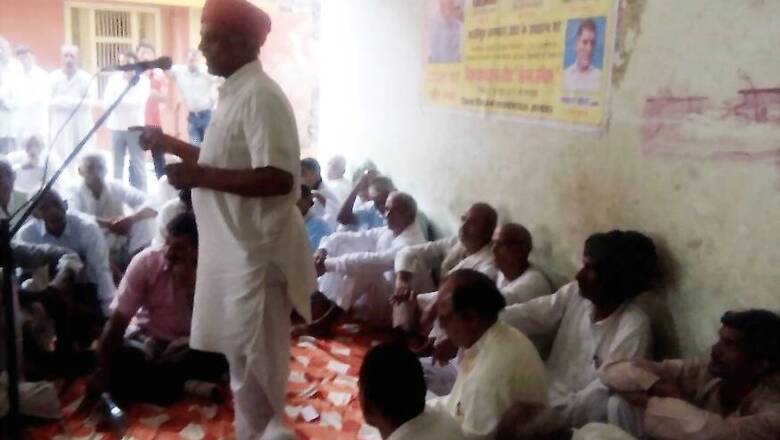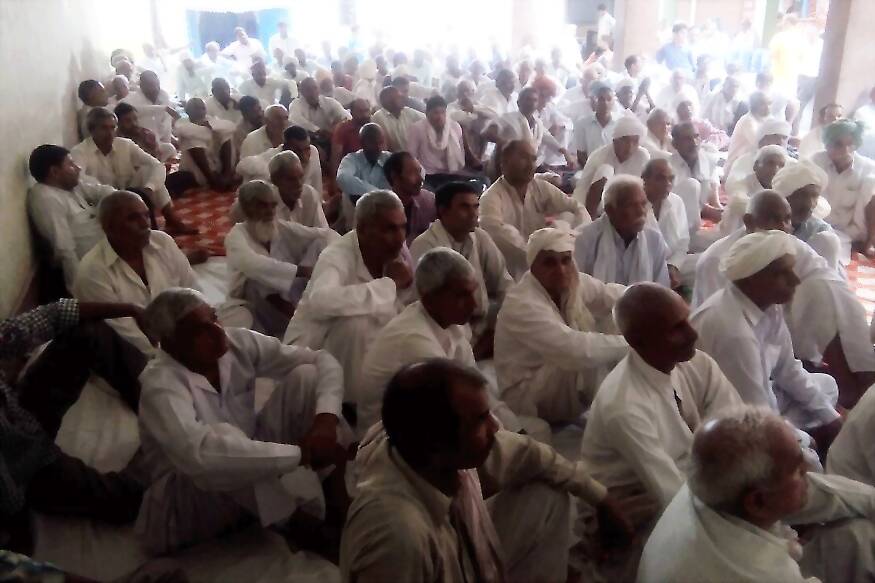
views
Alwar: The setting is the usual for such situations: A tent pitched near the gram panchayat office with a podium and a mike to address the farmers who have gathered around on a hot June day to listen to the speakers.
In Malakheda village of Rajasthan's Alwar district, the villagers nod in agreement as the speakers talk about farmers not getting remunerative prices, selling their crops in distress and the government not procuring their products.
However, the surprising part is when one of the speakers says that farmers do not want loan waivers. The assembled farmers nod in agreement. Ajit Singh Gurjar, an office bearer of the Kisan Mahapanchayat, a farmers' organisation operating in Rajasthan, continues, "More than loan waivers, we want the right value for our farm products."
The assembled farmers nod their heads in agreement.

The total quantum of farm loan waivers has touched Rs 1 lakh crore and there seems to be pressure building in other states like Haryana and Madhya Pradesh to announce similar moves to deal with an unprecedented collapse of agricultural commodity prices that has added to farmer distress.
But at farmers' meetings in Rajasthan, there seems to be a recognition among some leaders and farmers that perhaps loan waivers are a temporary and expedient fix to farm distress.
Farmers' meetings are springing up all over Rajasthan. News18 attended two such meetings in Alwar district to gauge the mood among farmers. These meetings were ostensibly held to commemorate the death of farmers in Madhya Pradesh’s Mandsaur in police firing. However, issues pertaining to the farm crisis in Rajasthan, and Alwar in particular, were also discussed.
The main crops in Alwar district are Mustard, onions, wheat, bajra and jowar. However, all these commodities are selling below cost of production.
Take mustard. It costs a farmer Rs 4,200 to grow a quintal of the oilseed. However the market price currently prevailing is Rs 3,200. It's a straight loss of a thousand rupees on a cash crop.
The story of onions is even more tragic. It takes a farmer 6 months and Rs 50,000 to produce 60 quintals of onions (roughly the produce of 1 bigha). The current market price is Rs 300 per quintal, which translates to a price of just Rs 3 per kg! The loss per kg on onions is Rs 5.
One farmer in Malakheda said what he got from selling onions didn't even cover the cost of transporting them from his farm to the Mandi.
It is this unremunerative farm economy that is at the root of agricultural distress, the farmers said. The reason why farmers take loans from banks and money lenders is to meet their living expenses, which farming in general and this season in particular is not able to cover.
The government giving loan waivers is just a temporary solution, but as long as farmers don't get a fair price for their product, the cycle of taking loans and the call for forgiving them will continue.

The farmers in Rajasthan are demanding implementation of the minimum support price by the state government. (Photo: news18.com)
Farm loan waivers also do nothing for farmers who have borrowed outside the formal banking system.
Instead, what the farmers are demanding is a strict implementation of the minimum support price, including implementation of the Swaminathan Committee report.
In 2004, the UPA appointed a National Commission on Farmers headed by the prominent agricultural scientist M.S. Swaminathan. One of the recommendations was that farmers should be paid the cost of production and 50 percent above that.
This recommendation has not yet been implemented. Ramavtar Choudhury, a farmer cum lawyer from Harsauli in Alwar said that over the years, the cost of agricultural inputs (seeds, machinery, pesticides) has risen while the price that farmers get for their crops has remained more or less the same or declined.
On his 12 bighas of farmland, Choudhury grows wheat, mustard, jowar and bajra. None of them is fetching a remunerative price.




















Comments
0 comment